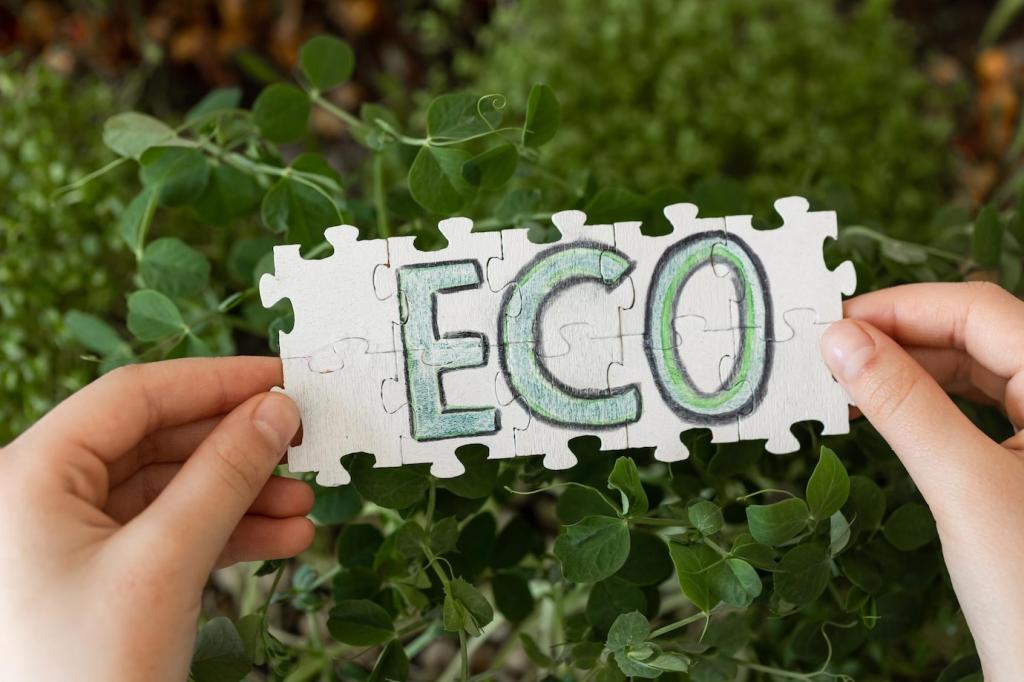Write to Win Your Sustainable Home
Chosen theme: Writing Strategies for Eco-Conscious Homebuyers. Learn to craft persuasive, evidence-rich narratives, emails, and listings that elevate green features, align values, and help you secure the eco-forward home you truly want.

Understand the Eco-Conscious Buyer Mindset
Values, Not Buzzwords
Avoid vague claims like “eco-friendly” and describe tangible features buyers actually care about: low-VOC finishes, FSC-certified wood, a HERS Index score, an induction range, and a variable-speed heat pump that delivers comfort with fewer emissions.
Map Pain Points to Promises
Eco-conscious buyers worry about volatile utility costs, indoor air quality, and climate resilience. Translate each worry into a clear promise: predictable bills, filtered fresh air, backup power readiness, and materials that are durable, repairable, and responsibly sourced.
Voice and Tone That Build Trust
Write with measured optimism and transparency. Cite sources, mention certifications, and acknowledge tradeoffs. If the attic needs more insulation, say it, then show a feasible plan with rebates and payback. Trustworthy writing wins the right attention.


Story + Data: The Dual Engine of Persuasion
Open with a lived scene: quiet mornings in sunlit rooms, a whisper-quiet heat pump, and clean indoor air after a rainy commute. Then bridge to facts about monthly savings, avoided emissions, and maintenance simplicity that sustain the feeling.
Story + Data: The Dual Engine of Persuasion
Turn features into metrics people recognize. Include R-values, U-factors, SEER ratings, ENERGY STAR appliance lists, and the HERS Index. Add life-cycle cost comparisons, utility bill snapshots, and available incentives so benefits become concrete and comparable.
Weave strategic keywords naturally: net-zero-ready, Energy Star, induction cooktop, heat pump water heater, EV-ready garage, graywater system, native landscaping. Use them only where accurate, pairing each term with a proof point to keep trust intact.
High-Impact Green Listing Copy
Offer Letters and Seller Notes With a Sustainable Edge
Express appreciation for the seller’s choices—like native gardens or upgraded insulation—without preaching. Emphasize continuity of care: you intend to maintain their systems, protect the landscaping, and keep the home efficient for future generations.
Offer Letters and Seller Notes With a Sustainable Edge
Reference the Appraisal Institute’s Residential Green and Energy Efficient Addendum, and offer documentation upfront: audit reports, equipment model numbers, warranties, and utility histories. Clear, organized writing reduces friction and helps the appraisal reflect real performance.
Offer Letters and Seller Notes With a Sustainable Edge
Propose small credits toward sealing or insulation that benefit both sides. Note available tax credits and rebates the buyer can pursue, framing them as tools to close gaps rather than complaints. Invite questions to keep collaboration warm and practical.
Emails and Messages to Gatekeepers
Write lenders with a clear subject line and bullet-pointed asks: availability of GreenChoice or Energy Efficient Mortgages, documentation needed for rate considerations, and timelines. Offer to share audits and invoices so underwriting can quantify performance benefits.
Templates and Frameworks Tailored to Sustainability
Attention: a vivid comfort moment. Interest: verifiable metrics and certifications. Desire: healthier air, quieter rooms, resilient systems. Action: request the HERS report, schedule a tour, or subscribe for templates. Keep each step crisp and evidence-backed.
